Results
-
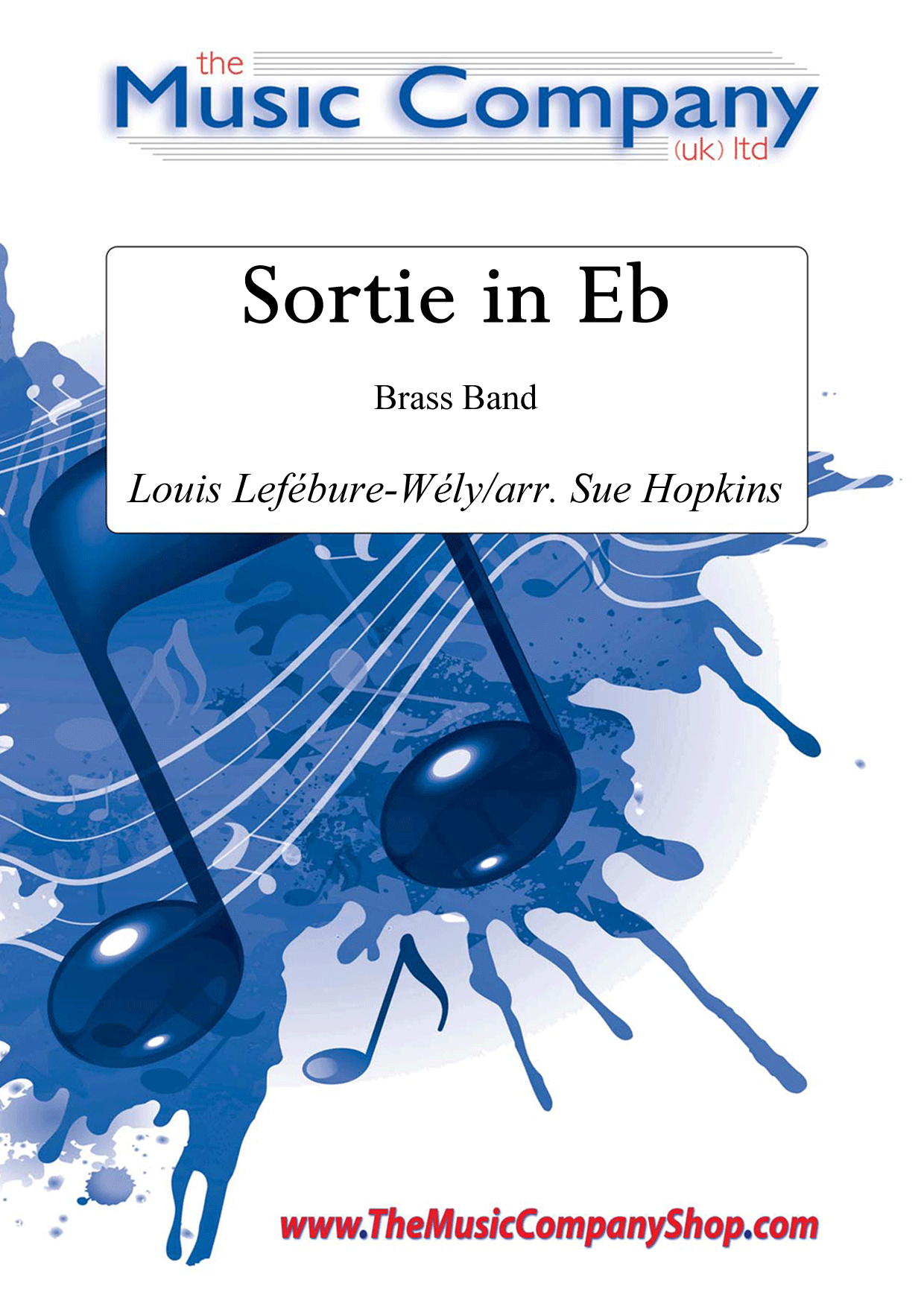 £30.00
£30.00Sortie in E Flat - Louis Lefebure-Wely
Louis James Alfred Lefebure-Wely is historically associated with the development of French organ music, as well as with organ technique. As a composer he was instrumental in the evolution of the French symphonic organ style and his works include many pieces for church use, and lighter fare like marches and sorties.It is probably in the latter genre that Lefebure-Wely scored his most enduring successes on the organ, with pieces like the sorties in B flat and E flat.Sue Hopkins has artfully captured the magic of Lefebure-Wely's writing and produced this great new piece which offers a perfect complement to your concert programme.
In Stock: Estimated dispatch 3-5 working days
-
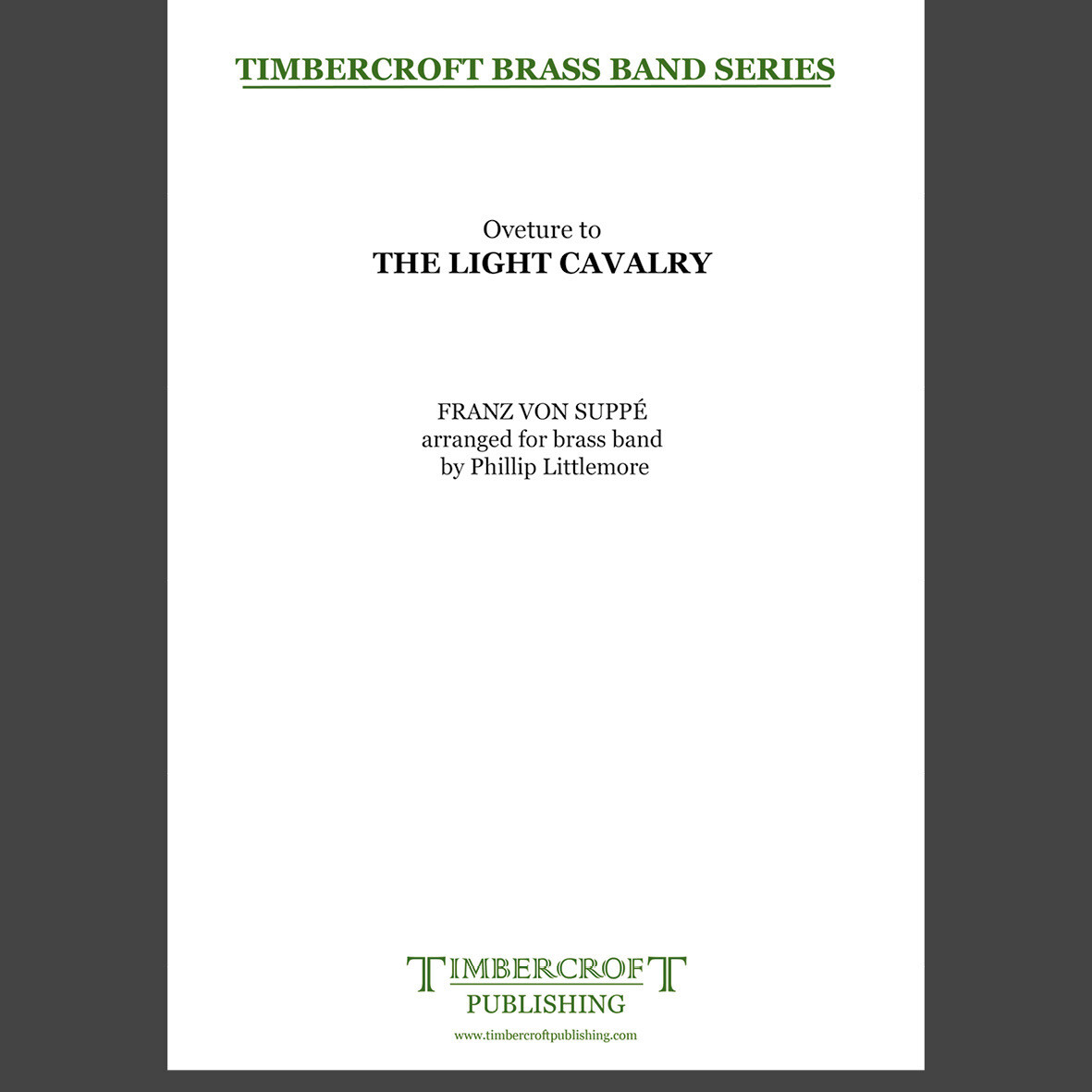 £40.00
£40.00Light Cavalry Overture - Franz von SuppAª arr. Phillip Littlemore
Francesco Cavalieri di Suppe-Demelli was born in Split, then in the Austrian empire, and began composing as a boy. On moving to Vienna he changed his name to the more Germanic and less ostentatious Franz von Suppe and began conducting opera as well as writing over three hundred works of his own. Most are unperformed today though the overtures, such as Poet and Peasant and Pique Dame, are still very popular. The operetta Light Cavalry was written in 1866 with a plot concerning a love intrigue which is resolved by the Hungarian Hussars (Light Cavalry).The Light Cavalry Overture consists of a fanfare, a faster section, and an Hungarian-styled slow section which are interspersed with the famous galop with its short, short long rhythm representing the beat of the horses' hooves. This music has been much copied, parodied and often used for cartoons.Duration: 6'00"Difficulty: Suitable for all grades
Estimated dispatch 5-7 working days
-
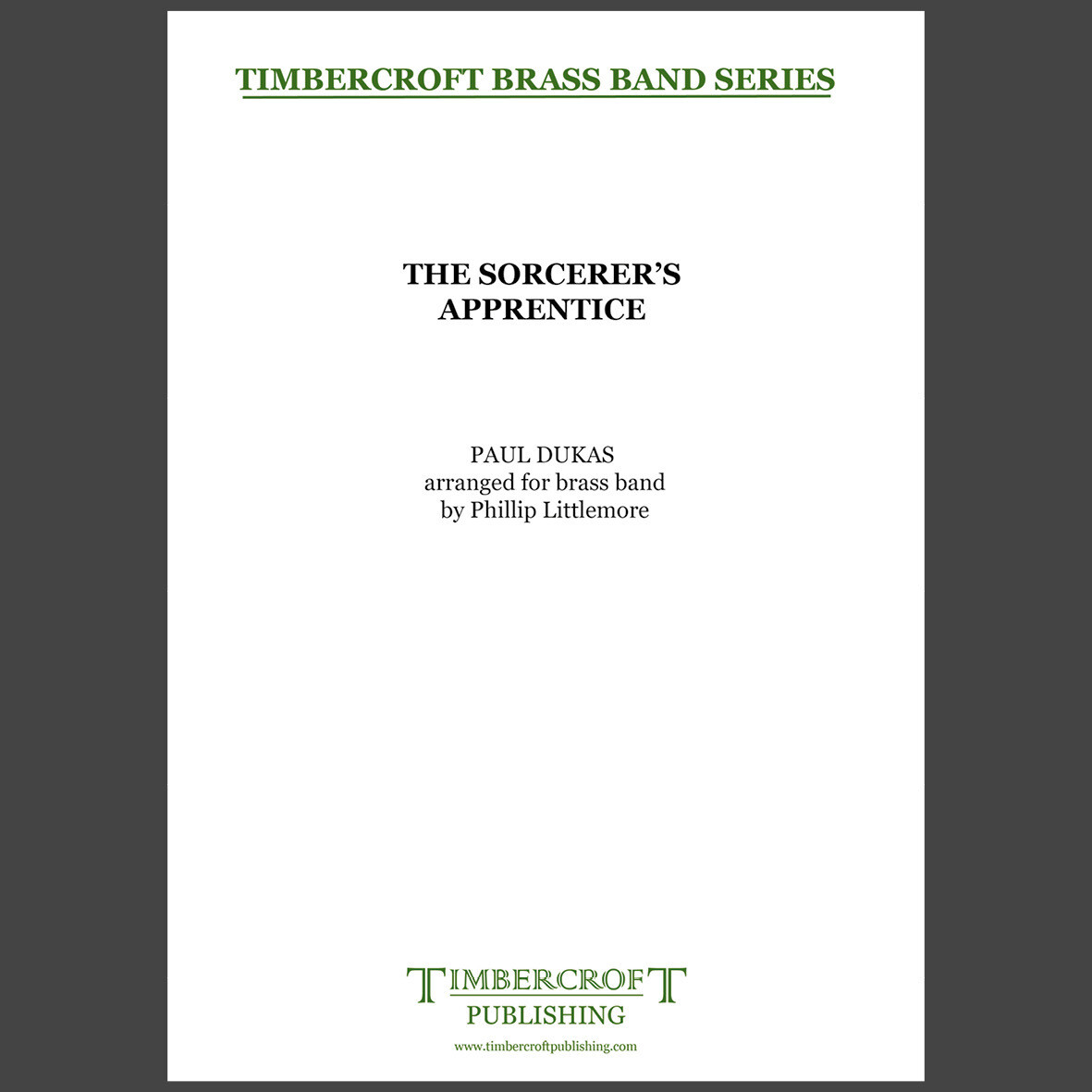 £40.00
£40.00Sorcerer's Apprentice, The - Paul Dukas arr. Phillip Littlemore
French composer Paul Dukas wrote his symphonic poem, The Sorcerer's Apprentice, between 1896 and 1897. Subtitled 'Scherzo after a ballad by Goethe', the piece was inspired by Goethe's 1797 poem of the same name. By far the most performed and recorded of Dukas' works, perhaps it's most notable appearance was in the Walt Disney animated film Fantasia from 1940, which led to the piece becoming widely known to audiences outside the classical concert hall.The original orchestral work is some 10 minutes in length, however this brass band transcription has been abridged to create a more manageable 6-minute work, yet it still retains the urgency, magic and colour of the original. Duration: 6'00"Difficulty: 2nd section and above
Estimated dispatch 5-7 working days
-
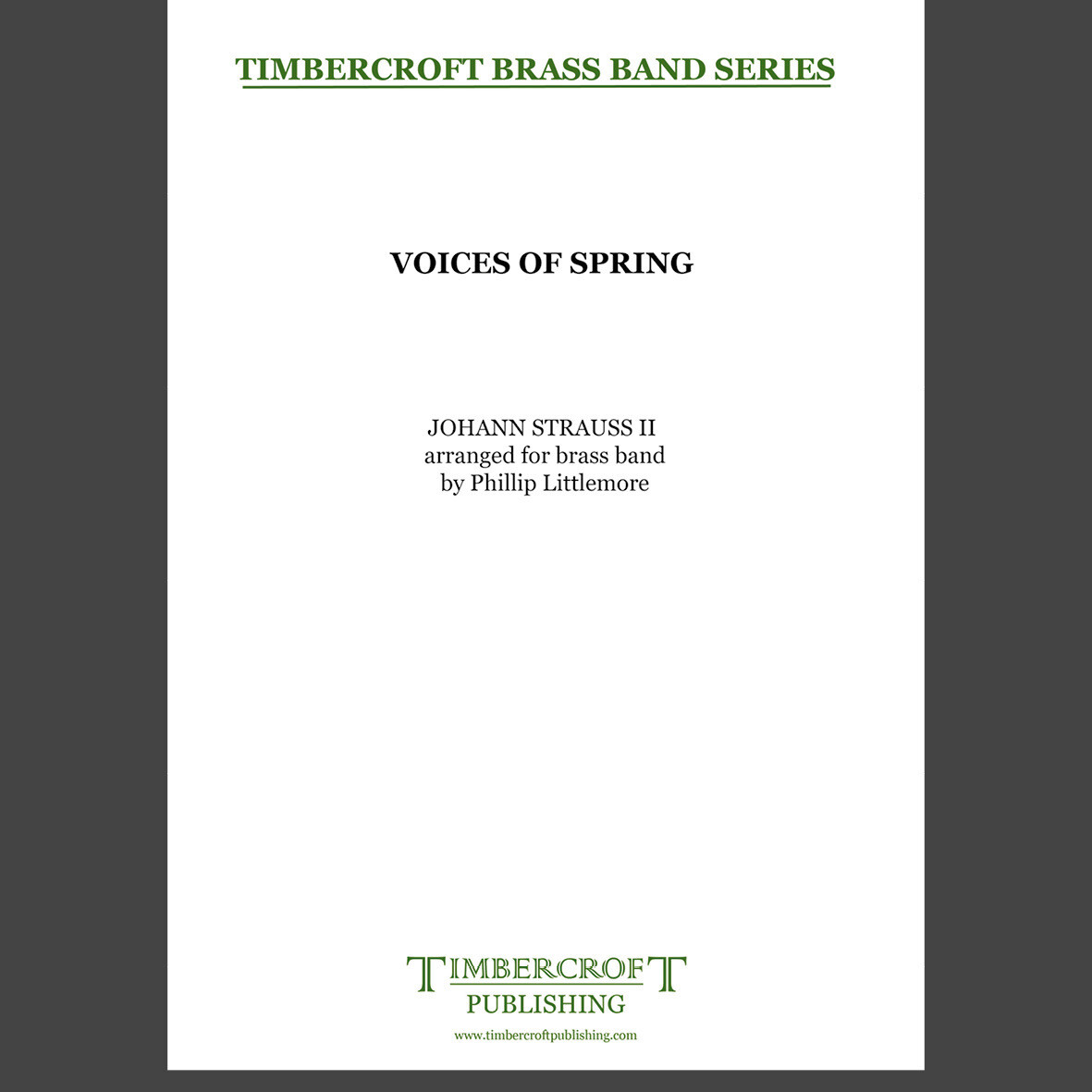 £35.00
£35.00Voices of Spring - Johann Strauss II arr. Phillip Littlemore
Voices of Spring is one of the younger Strauss' later waltzes, and was written quite a few years later than most of his other great works. It is unusual in that it was introduced not as an instrumental work, but as a vehicle for a coloratura soprano (coloratura meaning prone to elaborate ornamentation). The worked dropped out of the repertoire fairly quickly only to emerge as one of the all-time classics once in orchestral form. It is a staple of the concerts by Andre Rieu and his orchestra.Duration: 3'45"Difficulty: 3rd Section and above
Estimated dispatch 5-7 working days
-
 £40.00
£40.00Carnival of the Animals
Saint-Saens composed The Carnival of the Animals in 1886. He regarded the work as a piece of fun and was adamant that the work would not be published in his lifetime. It was published in the year following the composer's death and the first public performance was given on 25th February 1922. It was well-received and has since become one of Saint-Saens's best-known works.This brass band transcription contains six of the original fourteen movements and opens with Introduction and The March of the Royal Lion a brief, dramatic beginning is followed by a stately march for the 'King of Beasts' that is interrupted from time to time by the lions' formidable roar, depicted by ferocious, low chromatic scales. In The Elephant, a solo B flat Bass sings a doleful song made from melodies 'borrowed' from Mendelssohn and Berlioz without apology. Next comes the relentless descending third of A Cuckoo in The Deep Woods. Fossils are clearly not animals, but some of them undoubtedly were at some point, so Saint-Saens has some fun with the xylophone rattling around like a box of old prehistorix bones. Among some little musical quotes you can listen out for 'Twinkle, Twinkle, Little Star and some references to his own 'Dance Macabre' whilst opera buffs may recognise Rossini's
Estimated dispatch 5-7 working days
-
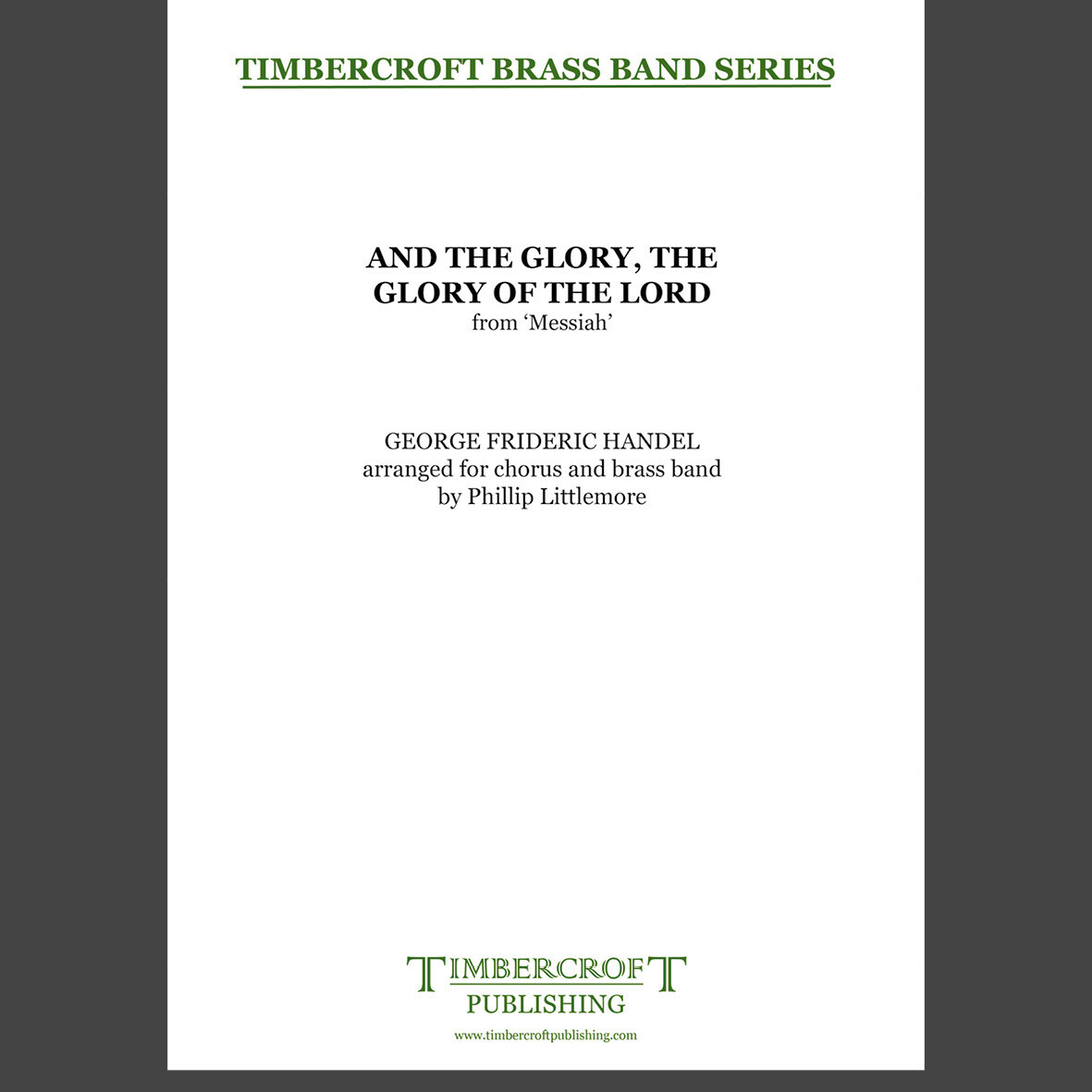 £35.00
£35.00And The Glory Of The Lord - Messiah
Handel's Messiah was composed in 1741, receiving it's premiere in Dublin a year later. And The Glory, The Glory Of The Lord is the fourth movement of the oratorio, and the first in which the choir sings. This arrangement, for chorus and brass band, works with all the major editions of the vocal score.Duration: 3'30"Difficulty: 3rd Section and above
Estimated dispatch 5-7 working days
-
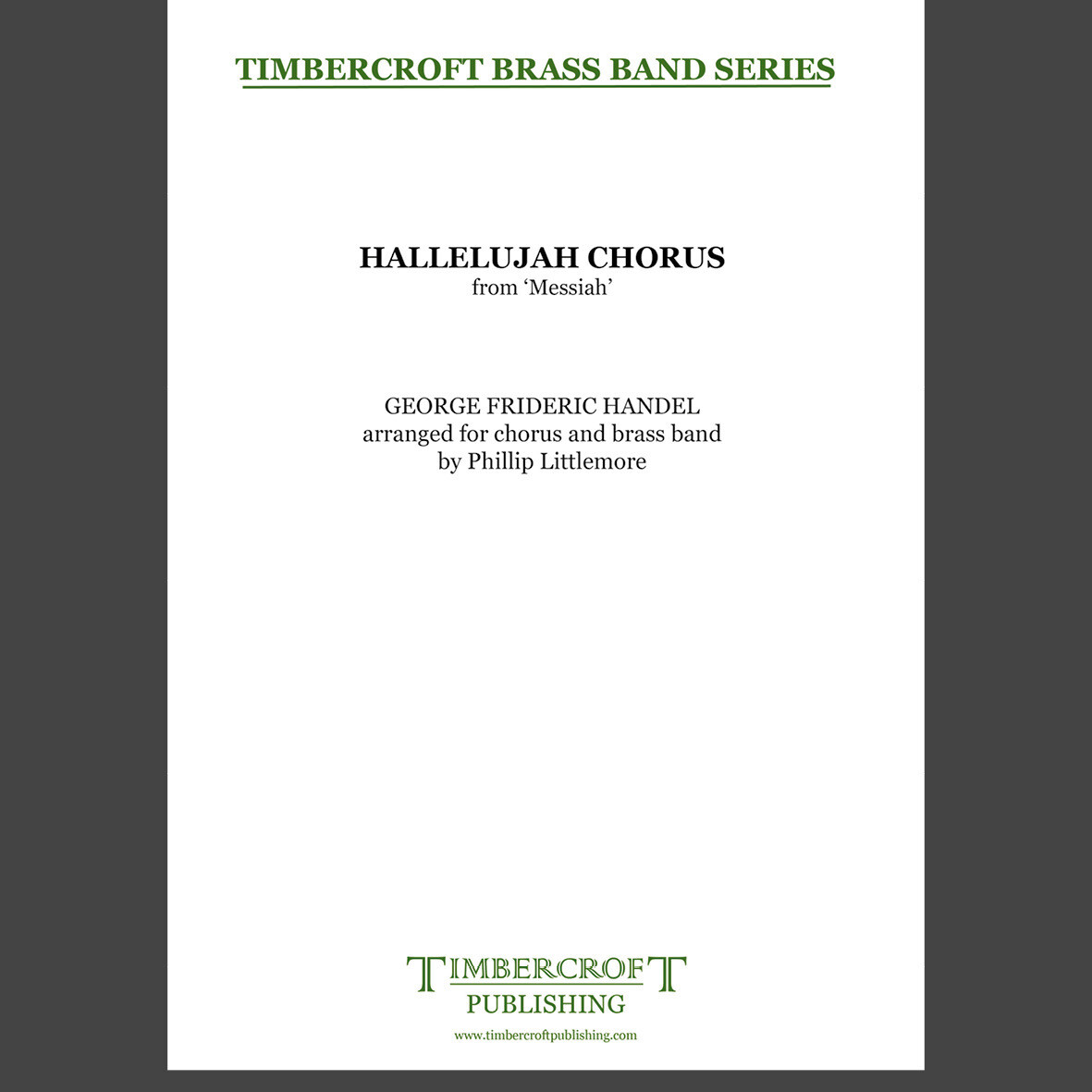 £35.00
£35.00Hallelujah Chorus - Messiah
Handel's Messiah was composed in 1741, receiving it's premiere in Dublin a year later. Written in three parts, the Hallelujah Chorus concludes the second part, and is often performed separately from the main oratorio, and especially around Christmas. This arrangement, for chorus and brass band, works with all the major editions of vocal score.Duration: 3'30"Difficulty: 3rd Section and above
Estimated dispatch 5-7 working days
-
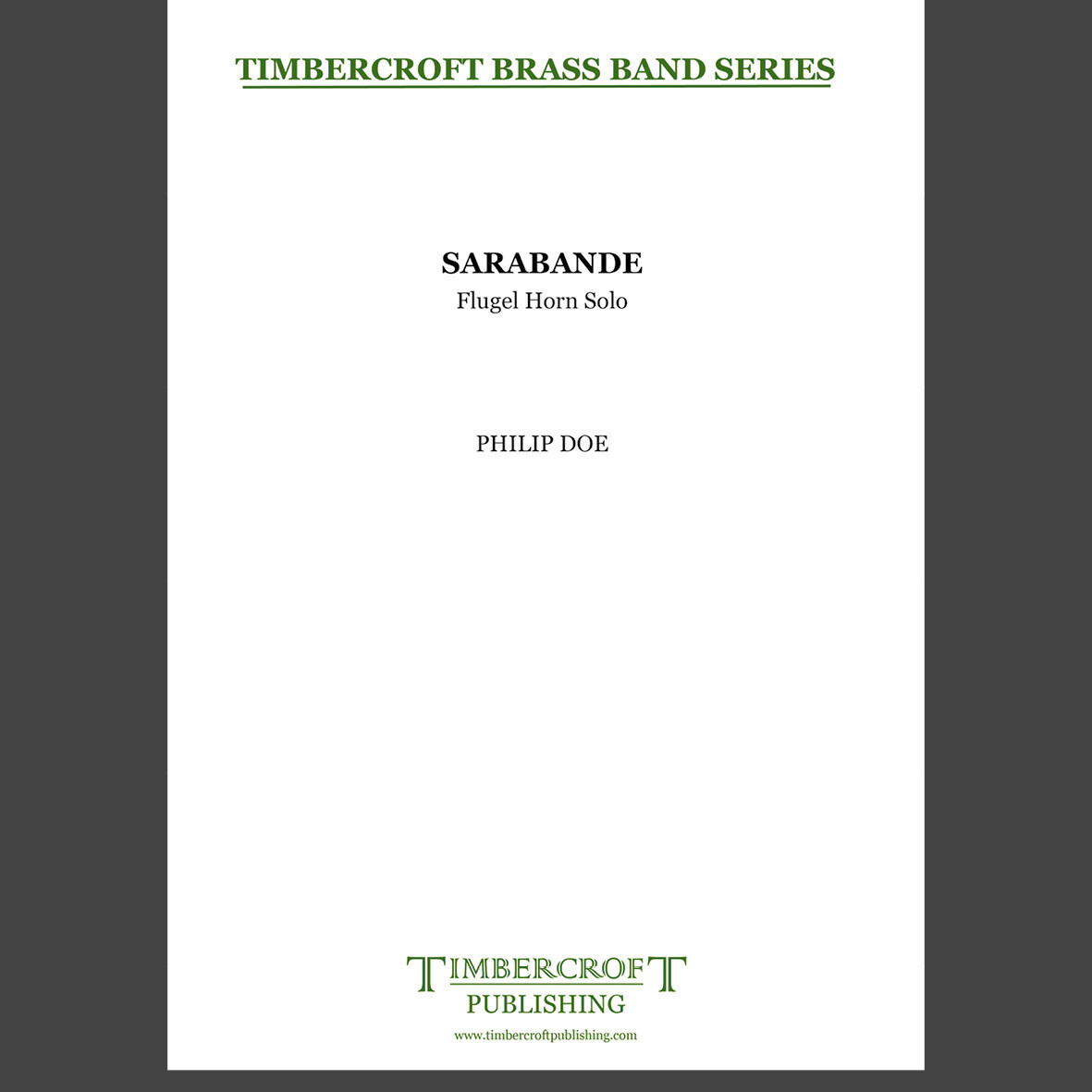 £30.00
£30.00Sarabande - Philip Doe
This Flugel Horn solo by Philip Doe is a beautiful melody complemented by a soft and subtle band accompaniment. It is a very welcome addition to the repertoire offering an opportunity for soloists to demonstrate their lyrical playing. It also works well as a cornet solo. A video of this arrangement can be found here: SarabandeDuration: 3'20"Difficulty: Suitable for all grades (band accompaniment)
Estimated dispatch 5-7 working days
-
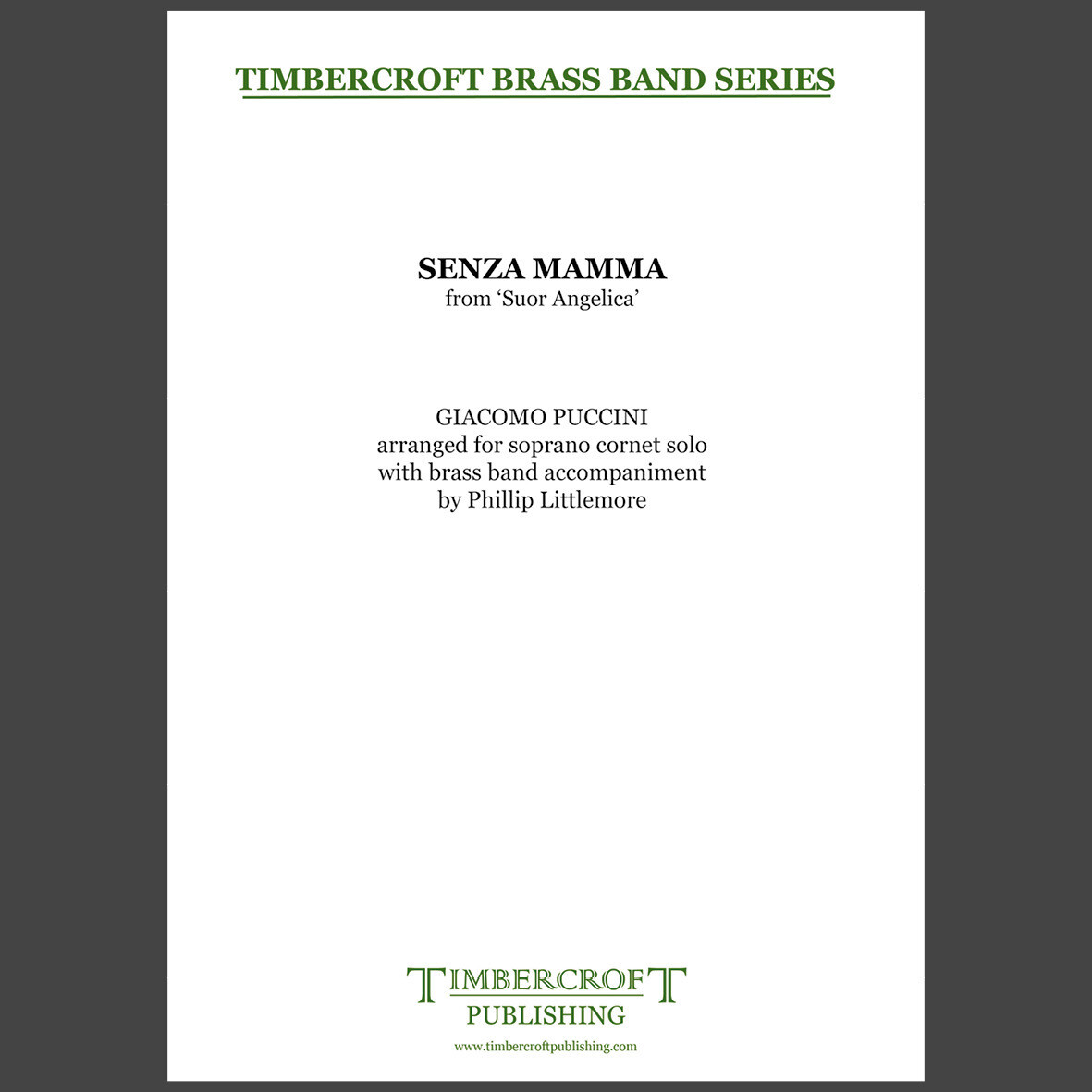 £25.00
£25.00Senza Mamma - soprano cornet solo
The aria Senza Mamma (Without your mother), sung by Sister Angelica, is one of the most poignant moments in any of Puccini's works, and has remained a recital favourite.Suor Angelica is the second instalment in Puccini's triptych of one-act operas commonly known as Il trittico. The opera chronicles the fall, redemption, and final transfiguration of its central character, Sister Angelica, who has taken the veil in repentance for bearing a child out of wedlock. The libretto, by Giovacchino Forzano, was immediately appealing to the composer, whose sister Igenia was Mother Superior of the convent at Vicepelago. Though it contains some of Puccini's most adventurous writing (the musical language at times even flirts with polytonality) the work has not enjoyed popularity comparable to that of its companions, Il Tabarro and Gianni Schicchi , each of which has enjoyed an independent life in the repertory.Duration: c.3'40"Difficulty: Suitable for all grades (band accompaniment)
Estimated dispatch 5-7 working days
-
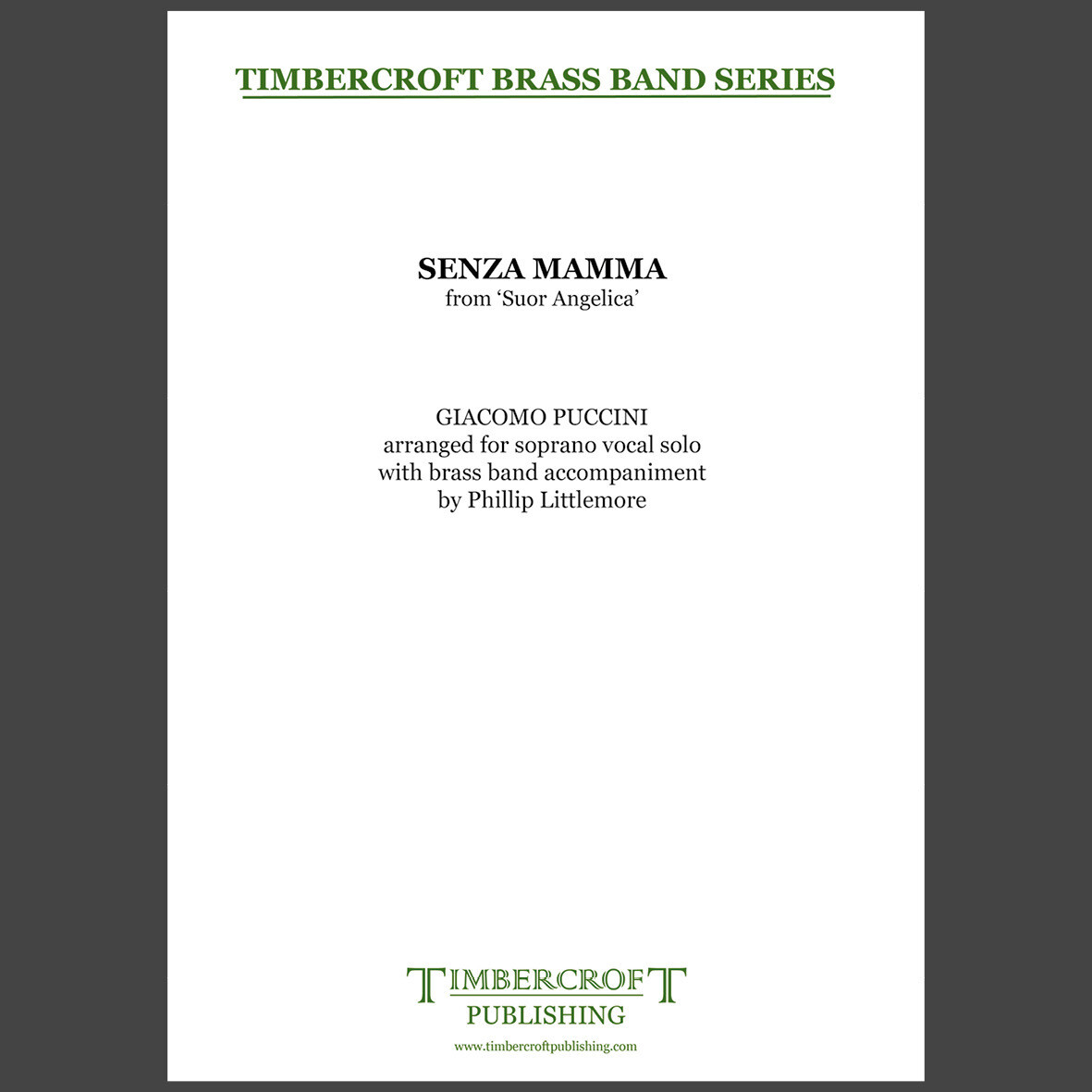 £25.00
£25.00Senza Mamma - vocal solo
The aria Senza Mamma (Without your mother), sung in the opera by Sister Angelica, is one of the most poignant moments in any of Puccini's works, and has remained a repertoire favourite.Suor Angelica is the second instalment in Puccini's triptych of one-act operas commonly known as Il trittico. The opera chronicles the fall, redemption, and final transfiguration of its central character, Sister Angelica, who has taken the veil in repentance for bearing a child out of wedlock. The libretto, by Giovacchino Forzano, was immediately appealing to the composer, whose sister Igenia was Mother Superior of the convent at Vicepelago. Though it contains some of Puccini's most adventurous writing (the musical language at times even flirts with polytonality) the work has not enjoyed popularity comparable to that of its companions, Il Tabarro and Gianni Schicchi , each of which has enjoyed an independent life in the repertory.Duration: c.3'40"Dofficulty: Suitable for all grades (band accompaniment)
Estimated dispatch 5-7 working days
